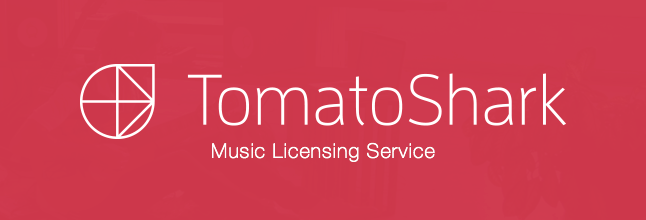By Mark Frieser, CEO, SyncSummit
Today, we’re launching a new feature on the SyncSymmit Blog, Profiles in Placement.
On a weekly basis, we’ll ask someone in the business of licensing and composition – music supervisors, composers, producers, artists and brand managers 5 questions about what they do, how they do it and who they are. The goal of this new series is to provide you a good perspective on how to succeed in the business of getting your music placed and used in projects and brands.
For our inaugural edition, I have the distinct pleasure to bring you a great rundown of the business from the perspective of Music Supervisor Jeff Gray, or just Pesci as many of us know him.
Jeff “Pesci” Gray
Besides being a great guy, and one of the more creative music supervisors out there, he knows his way around the challenges of placing music from both sides. His experience ranges from gigs at Warner Music Group to MTV to Fox and a range of freelance projects. Also, he works with Hunnypot Unlimited, who bring the world some of the most innovative and syncable music out there.
Here’s what Pesci has to say about the state of the market and his – and your – place in it:
Q1. Tell us about yourself and how you got into the business – what brought you to music supervision?
I got in to the music business as a professional guitar player. I came to California, played in a bunch of bands, on records and then took a day job doing royalties for Bug Music Publishing.
I was there 2 weeks and they recognized I knew a lot about copyrights and could communicate with all levels of clients. They gave me more responsibilities and that job became my entry in to the business side of music and music copyrights.
From there I worked at Cleopatra Records, MTV, Warner Music, Fox Sports Music and a ton of independent jobs as music supervisor / music clearance specialist / consultant and more.
During that time I also started hanging out at Hunnypot Unlimited (originally a part of Windswept Pacific Publishing) and that led to me being very involved with the company including over 200 episodes as one of the primary hosts of the radio show.
Q2. What are the types of projects you typically work on – do you have one form of media, like TV, or do you work across the board in terms of projects?
I work on wherever the work takes me. I’ve supervised and cleared music for feature films, television, Home Entertainment, Websites, short films, a host of consulting and A&R for soundtracks, compilation albums, tribute albums and more.
Q3. How has the business of placing music changed since you started in it – both for better and worse?
The business has changed a lot since I started.
I give credit to really learning about synchronization from my Bug Music colleagues Pam Lillig, Dan Burgoise, Jonathan Palmer, Eddie Gomez and Mara Schwartz.
I watched and learned about pitching music and how to pitch it to music supervisors without being a dick (an extremely important quality –MF).
This was the time when synchronization really started to become the next big thing.
Previously many publishers & writers were hesitant to give permission for their songs to be used in television, movies and commercials. Mechanical and performance royalties were really shrinking due to the change in consumer habits and writers/publishers started to notice that the fees for synchronizations were very attractive.
These writers/publishers were getting older and wanted to buy homes and raise families so there were meetings after meetings to discuss changing their agreements and permissions to allow Bug Music to pitch and secure synchronization licensing for them.
Between 2005-2008 I was working at MTV doing clearances for programming and back then we were pushing really hard to build our library of independent, inexpensive blanket licenses for unlimited uses.
In the beginning we had to sell the idea to copyright holders; by the end of my time there we were inundated and saturated with music. It seemed like everyone was catching on that even inexpensive synchronization fees could lead to lucrative performance fees if a program was airing a lot.
I could also just call up almost any music supervisor inside and outside MTV and share music with them if I thought their project could benefit. I was sending music to some of the biggest music supervisors currently who where at that time they were relatively new.
I believe it has gotten worse though. Over-saturation of banal and predictable library music, mediocre “singer/songwriter” tracks and hot new indie bands seem to pop up every day now. There certainly isnt any lacking of quality tracks out there but with so many entities pitching music there’s a lot of push for some really basic and lackluster music.
I shouldn’t have to be coaxed with free food and drinks to listen or consider your tracks. They should be good enough for me to react positively on the first listen.
Q4. How do you work in terms of finding music – who do you with work, where of you find them and how do you want them to work with you (a best practices question).
I can’t ever NOT find music. It comes to me every day and multiple times a day. Emails, phone calls, text messages, social media; I’m getting pitched to constantly regardless if I have a place for it or not.
I do have some really trusted sources for music when I perform searches for specific pieces. I don’t want to play favorites in print but these people know who they are who save my butt for high quality replacement tracks for songs that are troublesome to clear or expensive.
I find the music everywhere though; literally everywhere. I listen all the time and I am solicited all the time.
What works best is someone who gets what I’m looking for.
I tend to work with people/entities that don’t waste my time and really get what I need. Too many times I’ve put out a search for music and get the response: “I know this isn’t what you’re looking for, but maybe you’d consider this awesome track…etc” That won’t fly when I have to answer to producers, editors, directors etc. If it’s my own production I could have the freedom to change creative direction…but that’s rare to never.
Q5. What are the current projects you’re working on and how can people work with you – both in terms of hiring you as a music supe and in for content owners and artists?
at this very moment I am not actually currently working on supervising any programming (it can change any second though). I am on call and consulting on a few projects (a horror film, a rock n roll/punk type film with a celebrity cast, a hip hop documentary series and more) but I’m not currently selecting tracks or clearing anything.
If people want to work with me just call me up.
We can discuss your needs and desires. I can be a full service music supervisor including hiring and creative direction for composers (not just pre-recorded music) or I can just provide clearance for songs you’ve already picked etc.
I am an amateur to professional musicologist (depending on genre and decade). I have a tremendous skill set for negotiating rates and for getting replacements for problematic song clearances.
Between my corporate gigs and independent work I’ve saved productions over 5 million dollars in licensing fees by being creative and savvy.
And one more… What do you think is the biggest issue in the world or placement and music supervision and how do you think we can fix it, if at all?
I think the biggest issue(s) in supervision and placement are the age old issues.
How to navigate and educate on the value of synchronization uses for both sides. I don’t feel that some legacy artists should unilaterally quote $20k a side minimum for every use and I don’t think productions should be asking for legacy songs for pennies.
I’d like to see more fluidity with licensing music for synchronization. Music synchronization has a very retail feel to it now. These are the new record sales/promotion tools. Perhaps licensing entities should consider creative approaches to their catalogs. Sales flyers, limited time sales, “inventory” slashing sales, bulk pricing, creative pricing for specific plots/themes/programming.
It’s a VERY cutthroat business now (licensing music) and creativity in pitching and licensing are more necessary than ever. There are always huge legacy songs that will be staples but if you’re a massive publisher or label you’ve got thousands to millions of songs that haven’t been heard in decades and it’s probably fantastic music. Why not try to exploit these lost gems and make them financially attractive so that other supervisors and producers may take notice. Basically typing up fancy emails and offering tickets to hot shows is pretty cliche and over-saturated.
With that one of the other bigger issues honestly is the dishonesty and cutthroat side of pitching and placing where behind the scenes supervisors and pitching people are taking cuts of licensing fees or portions of publishing on songs as a condition of placing or even just pitching the music with no monetary trade (i.e. a real publishing or recording contract).
Every other person wants to be a music supervisor or have their music synchronized in media. There is a glut of music to place and not enough productions to hire everyone so there’s real competition and desperation sometimes which leads to morally suspect behaviour to try to make a dollar.





